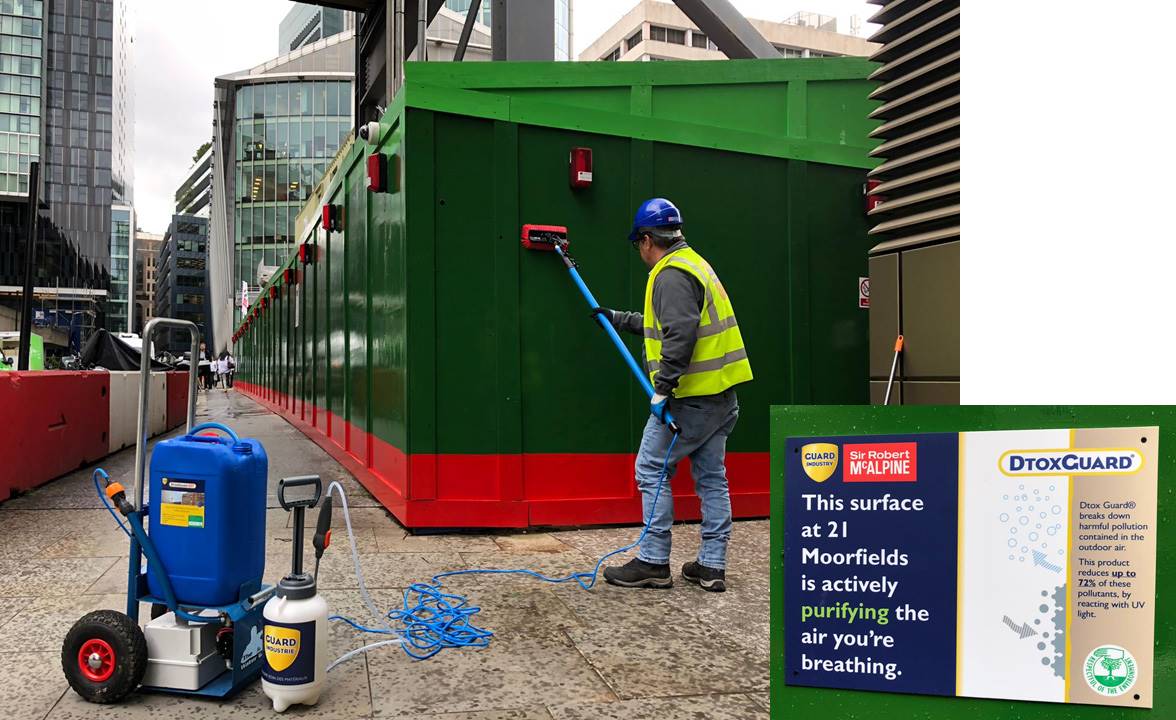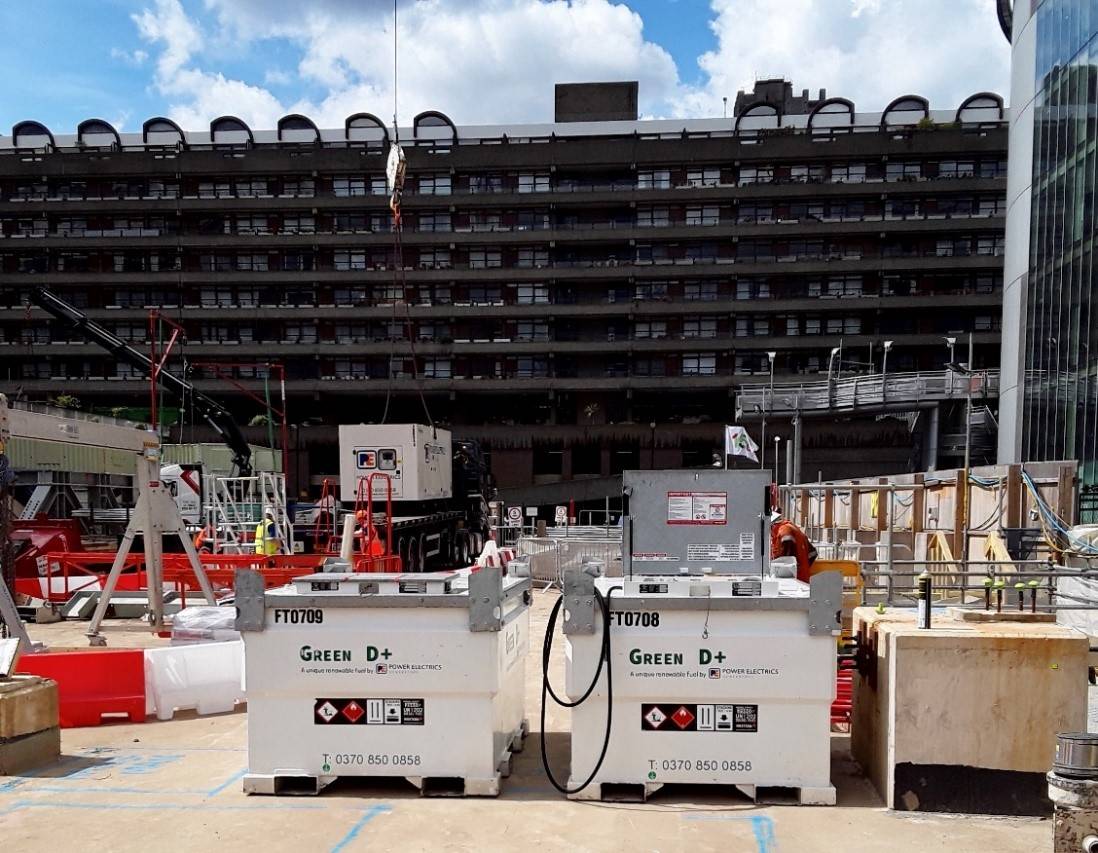
Ready Steady 150
19 Jul 2019For 5 weeks this summer saw teams from across the company grab their trainers to take a little time out for their own health and well-being as part of our Ready Steady 150 campaign.
21 Moorfields site adopts innovative site hoarding treatment and renewable fuel sources to reduce local air pollution around Moorgate tube station.
Located above Moorgate Station in the City of London, our team are just getting started on our 21 Moorfields site, where we are building a 17-storey office space for our client Landsec. The building is already pre-let to Deutsche Bank.
To protect the station from the load of the building, we are constructing a highly technical steel frame set on enormous transfer trusses spanning 60m across the underground station, calling for careful specialist design and true engineering excellence to ensure the frame is constructed in a very specific way. But already, our team are working hard to ensure the project is led by our commitments to sustainable construction and caring for the local community.
Rising NOx levels is a growing concern for the construction industry and we are committed to reducing these locally. Following the successful trial in our Manchester office, we have applied Photocatalytic treatments to our site hoardings at 21 Moorfields.
Guard Industry's ‘Dtox Guard’ product contains titanium dioxide (TiO2) which acts as a catalyst when under UV light. The TiO2 becomes activated and breaks down airborne pollutants such as NOx through the process of photocatalysis, it also destroys dirt and grime, effectively becoming self-cleaning, and will purify millions of cubic meters of local air each year.


The team are also trialling the of a use of hydrogenated vegetable oil to fuel two generators. The ‘Green D+’ fuel is made exclusively from waste products – comprising of a mix of vegetable oils, and animal/fish fats. Unlike regular diesel, hydrogen is used as a catalyst in the creation process instead of methanol. The renewable fuel saves one tonne of carbon for every 350 litres of fuel used and we are anticipating a saving of 12.5 tonnes of carbon – that’s roughly the equivalent of 3 personal flights from London to Sydney.
Beyond it’s carbon benefits, it also achieves a 29% reduction in NOx emissions and a 77 % reduction in airborne particles compared to red diesel, therefore further reducing air pollution in the local area.
Our team are committed to engaging with, and minimising disturbances to, the local community surrounding our 21 Moorfields site. The trial of hydrogenated vegetable oil fuel follows a recommendation from one of our neighbours, and is anticipated to reduces combustion noise, sometimes referred to as ‘knocking’ noise, that is often associated with running generators.
By using cutting-edge technology like Dtox Guard, as well as renewable fuel powered generators, we are helping to passively reduce the levels of harmful atmospheric gases in the local area and potentially improving the health and well-being of the local community, our workforce and the thousands of commuters using Moorgate Station every day.
Find out more about our commitment to sustainable construction and putting the local community at the heart of our projects.
For 5 weeks this summer saw teams from across the company grab their trainers to take a little time out for their own health and well-being as part of our Ready Steady 150 campaign.
Our Align joint venture team has drawn on the expertise of our McAlpine Lifting Solutions (MLS) colleagues to help overcome the logistical challenge of assembling the giant tunnel boring machines that will be used on HS2.
Patrick Williams of The All England Lawn Tennis Club explains how the project is ‘too big and too complicated’ to take place without close collaboration.

